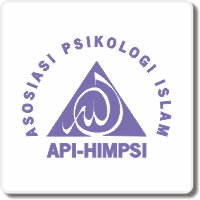Academic Adjustment as a Mediator of Self-Effficacy in Online Learning and Subjective Well-Being in Students
DOI:
https://doi.org/10.32923/psc.v5i1.3181Keywords:
self-efficacy in online learning, subjective well-being, academic adjustment, Pandemic COVID-19Abstract
The widespread and rapid spread of the COVID-19 pandemic has made the offline learning to be changed to online learning from home. It subsequently has brought on impact on the subjective well-being of students. This study was aims to examine to what extent the role of self-efficacy in online learning and academic adjustment can predict the level of subjective well-being of students at Islamic University of Indonesia during the COVID-19 pandemic. A number of previous studies have shown that students with good self-efficacy and academic adjustment will have good subjective well-being. Research data were collected using the PANAS (Positive Affect and Negative Affect Scale) scale from Watson, Clark, and Tellegen and the SWLS (Satisfaction with Life Scale) scale from Diener to measure the affective components or positive and negative experiences of the respondents; self-efficacy scale in online learning from Zimmerman and Kulikowich; and the academic adjustment scale of Anderson, Guan, and Koc. Data analysis was conducted using exploratory factor analysis (EFA) and mediation analysis using JASP 0.16.1 software. The results of the analysis showed that self-efficacy in online learning brought an impact on the students' subjective well-being during the COVID-19 pandemic through the intermediary of academic adjustment (0.055). Individuals with high self-efficacy in online learning will be capable of adjusting to adjust to online academic demands well. It, as a result, has brought an impact on the quality of good subjective well-being. Thus, the research hypothesis is accepted.
Downloads
Published
Issue
Section
License
Copyright Notice
The Psychosophia: Journal of Psychology, Religion, and Humanity is under the Creative Commons Attribution 4.0 International (CC-BY 4.0) License, according to which:
1) Authors retain copyright and grant the journal the right to first publication, with the work simultaneously licensed under the Creative Commons Attribution (CC-BY 4.0) that allows the sharing of articles published with the acknowledgment of authorship and the initial publication in this journal.
2) The authors are authorized to make additional contracts separately for distribution of the version of the work published in this journal (for example, publication in an institutional repository or as a chapter of the book), as long as there is recognition of authorship and initial publication in this journal.
3) Authors are authorized and encouraged to publish and distribute their work online (for example, in institutional repositories or on their personal pages) at any time before or during the editorial process, as it increases the impact and reference of the published work.






